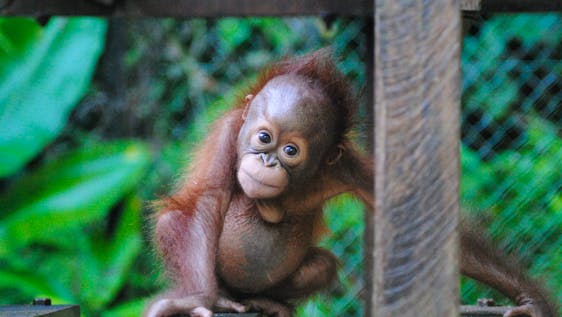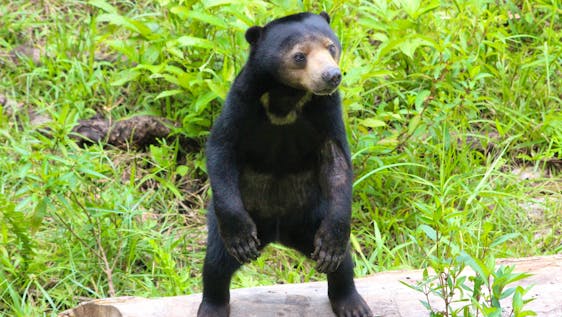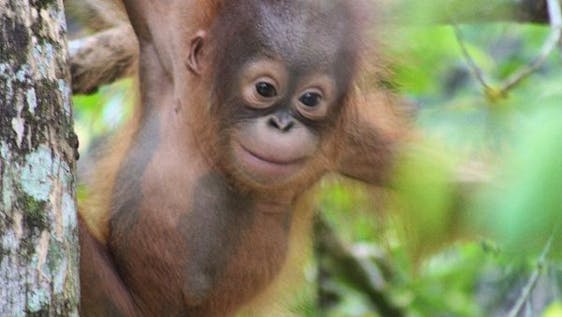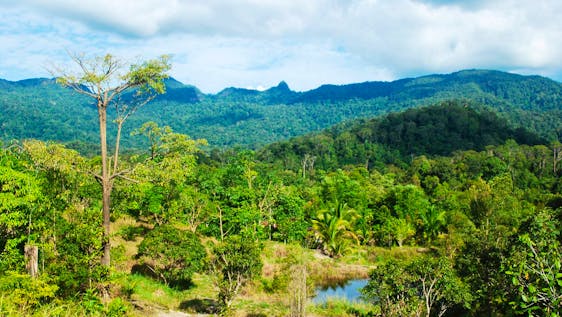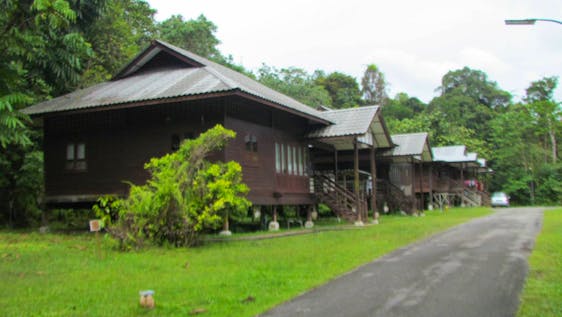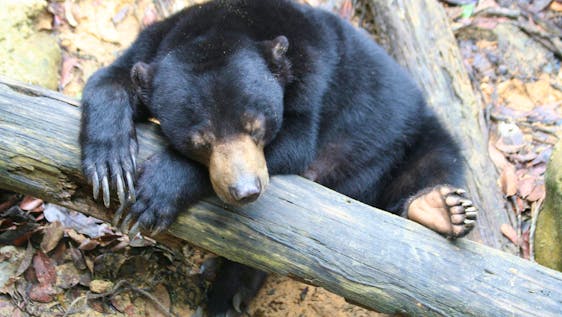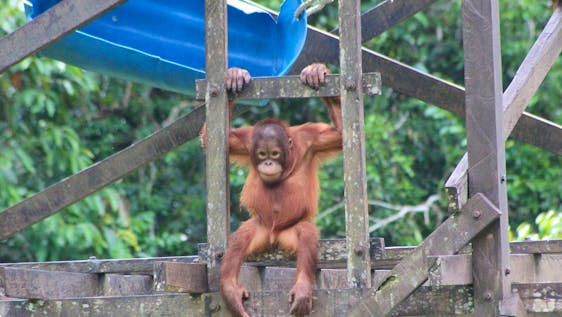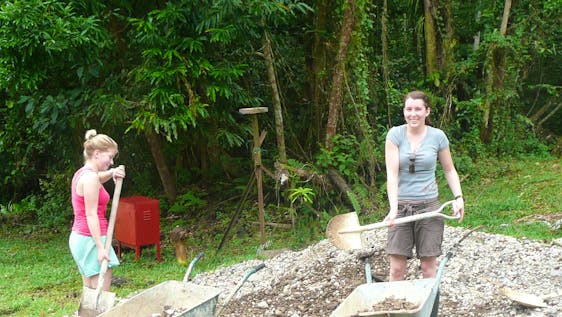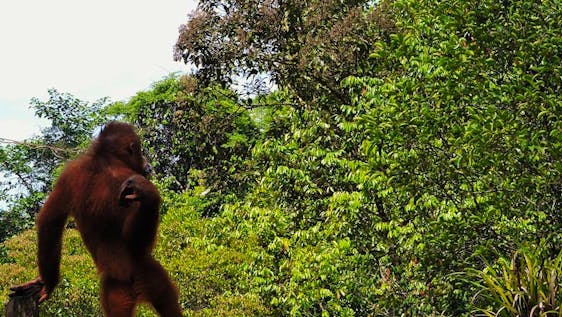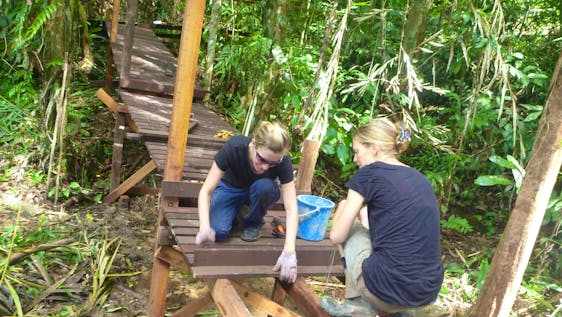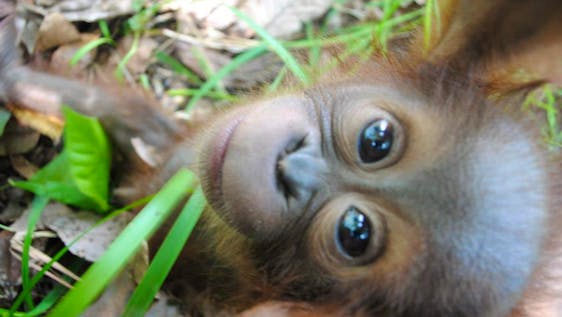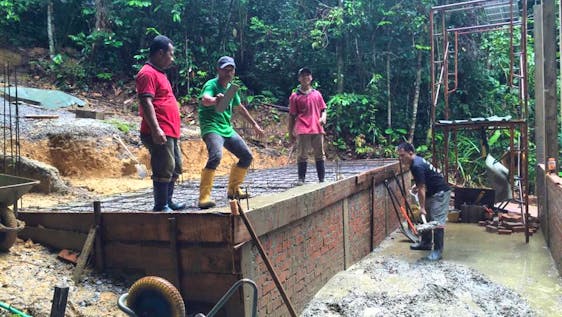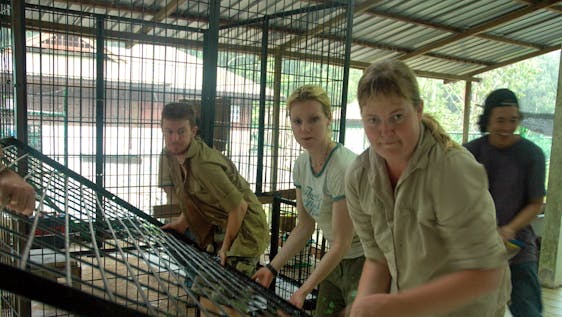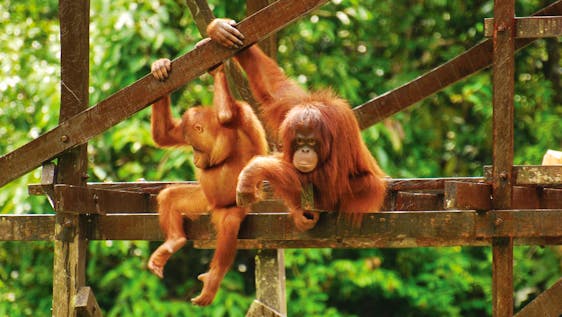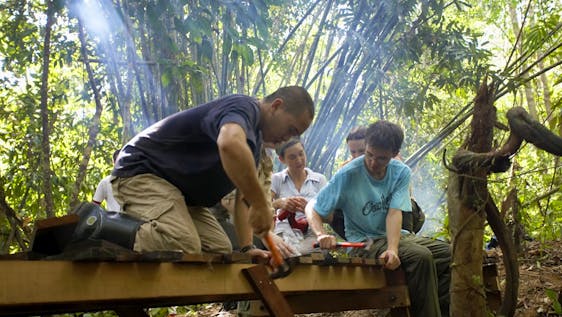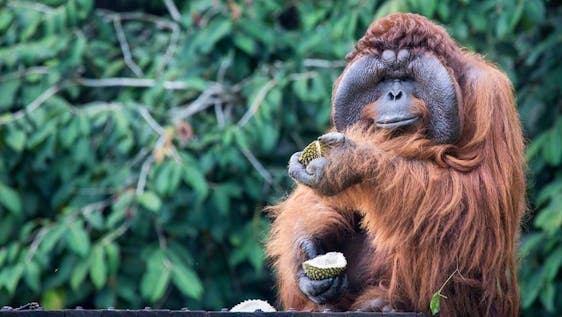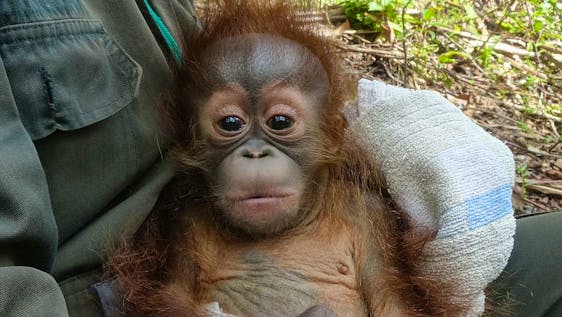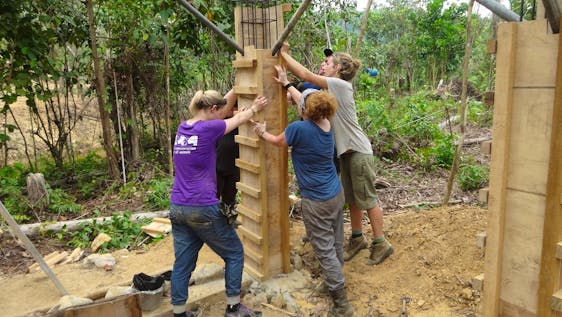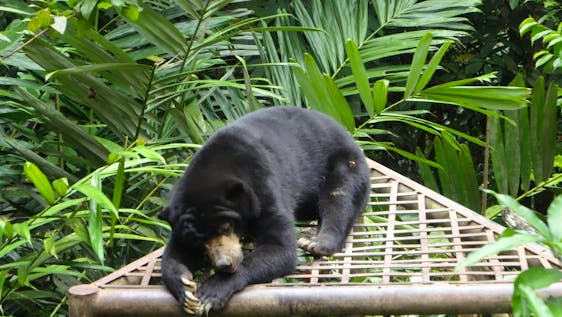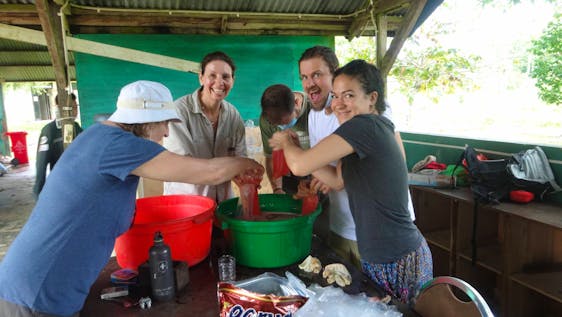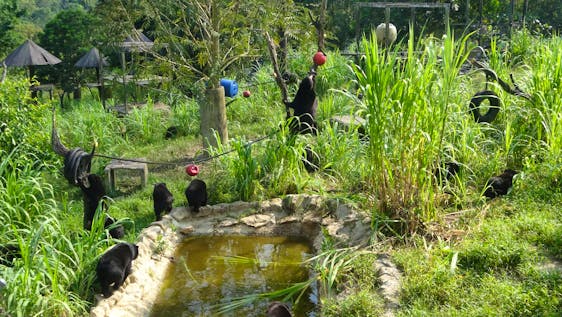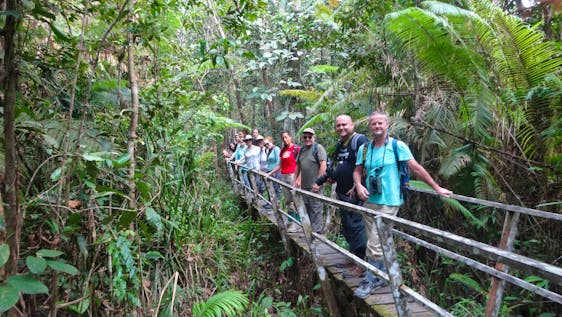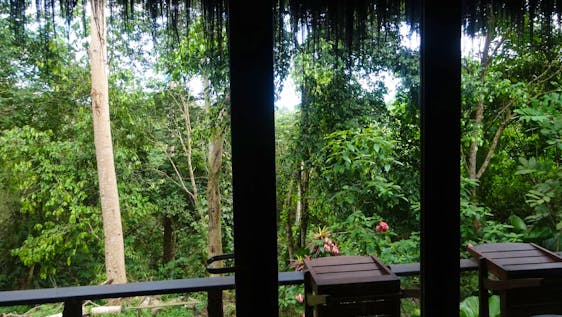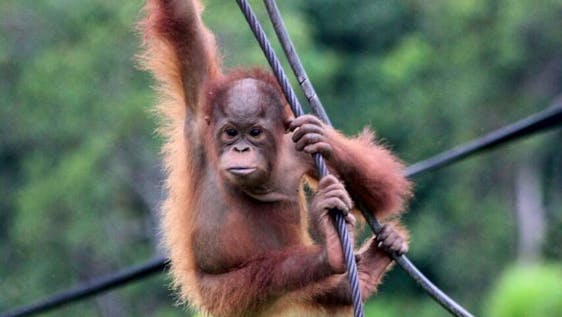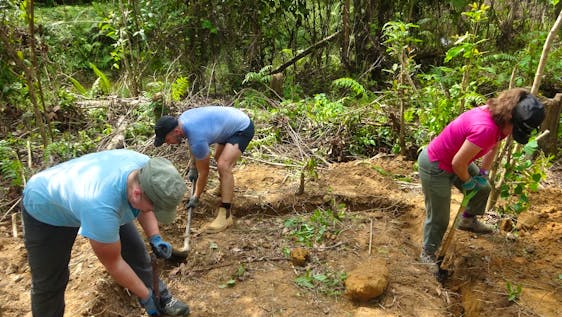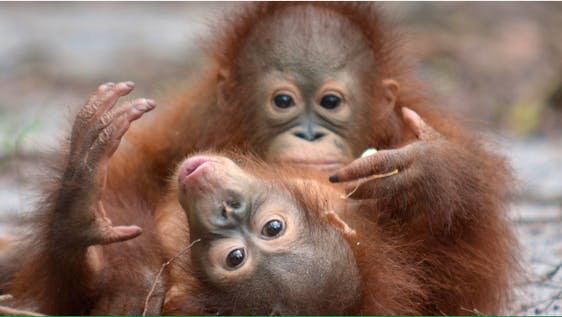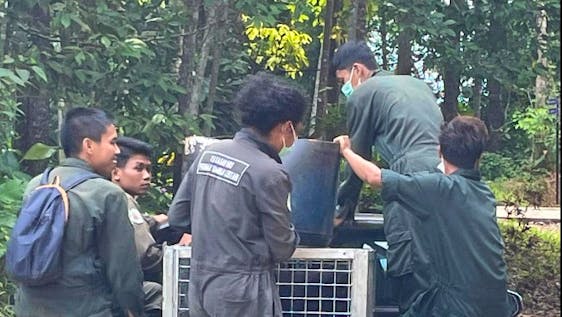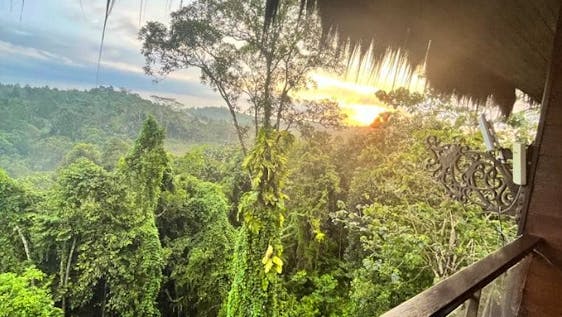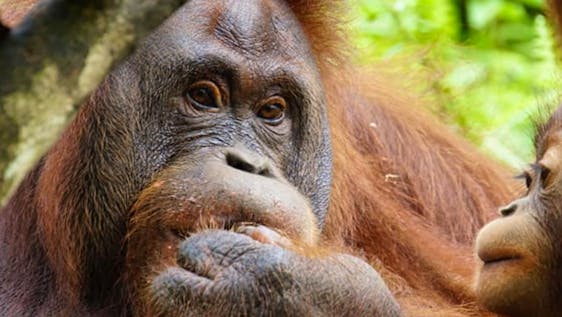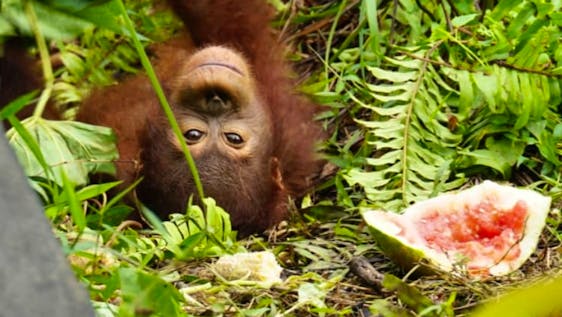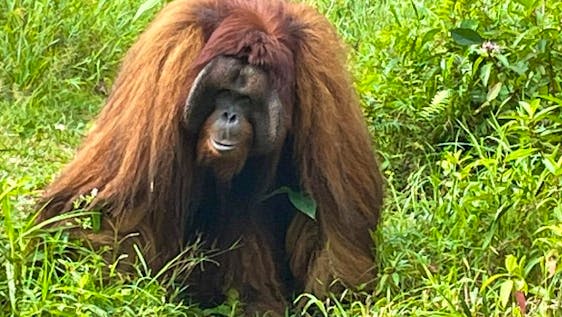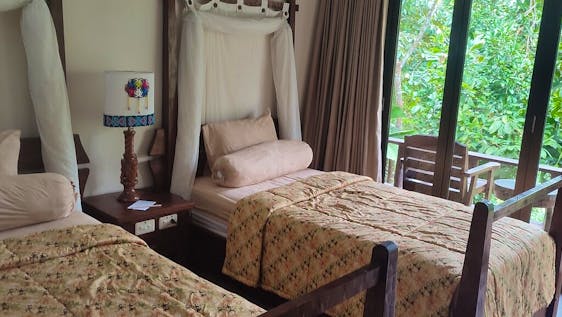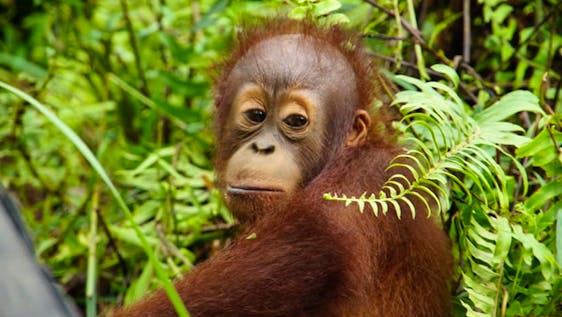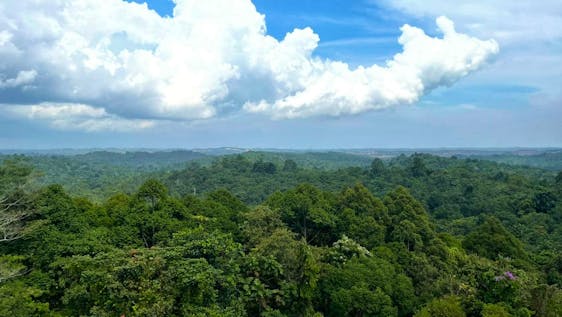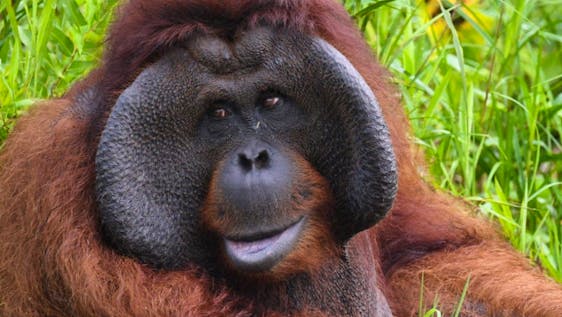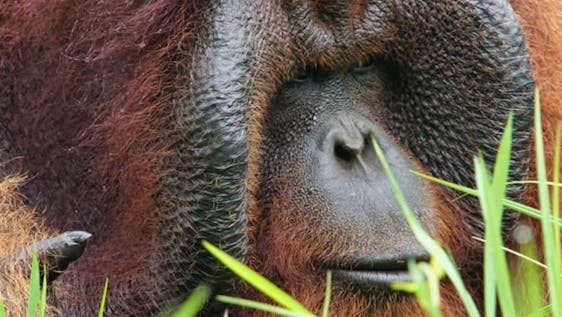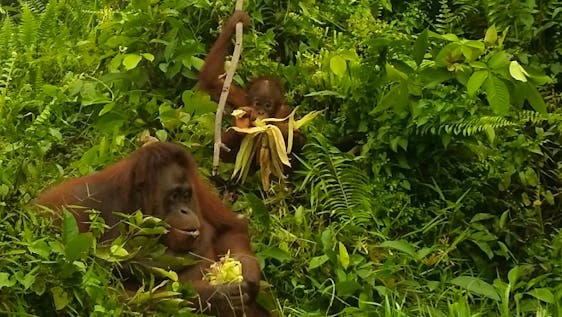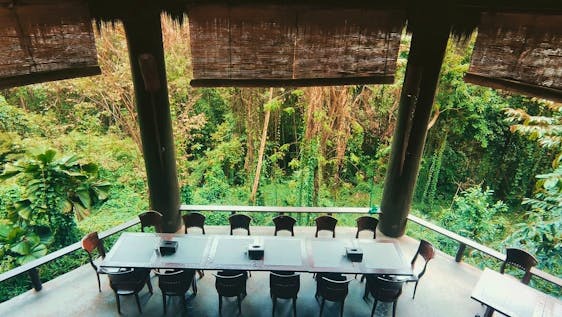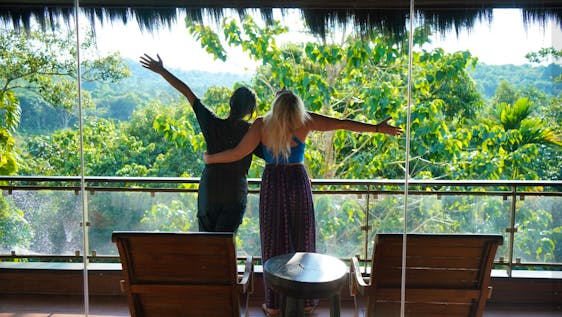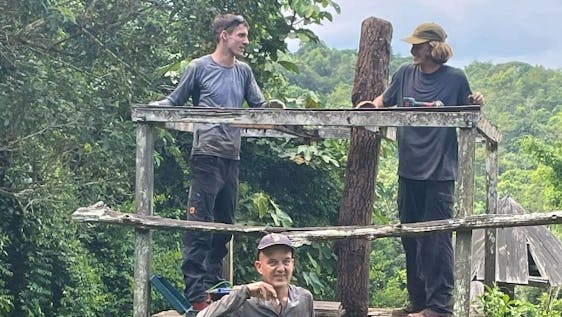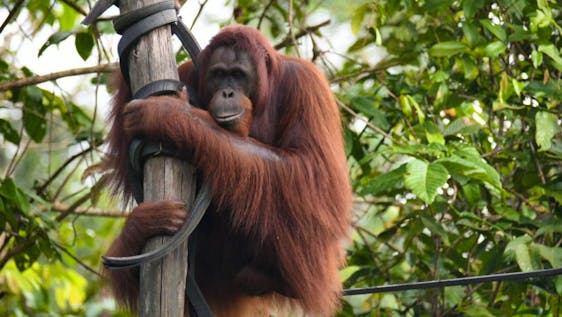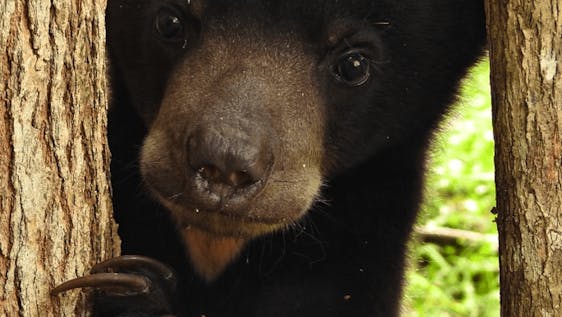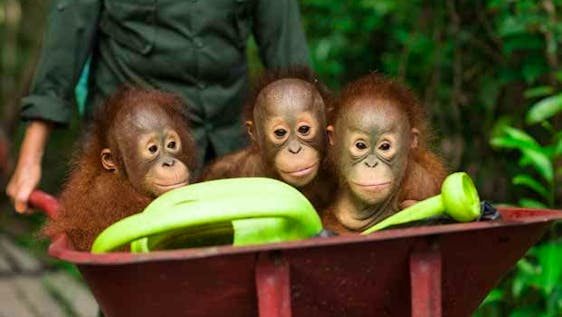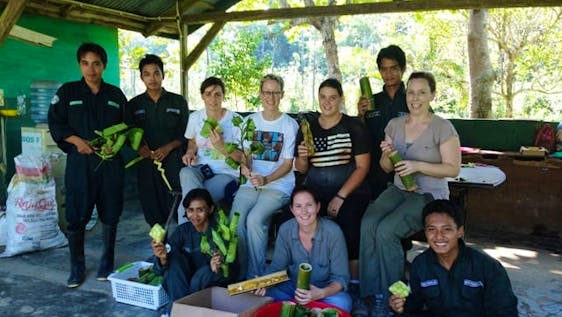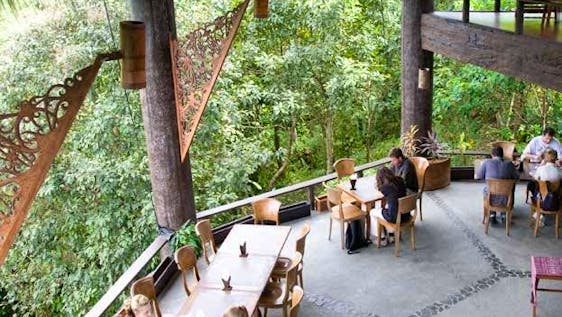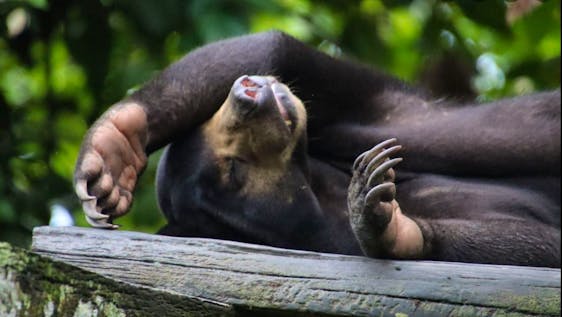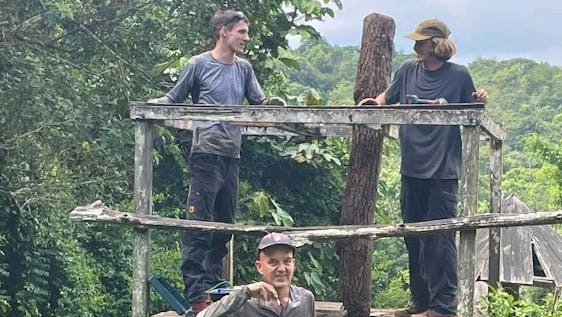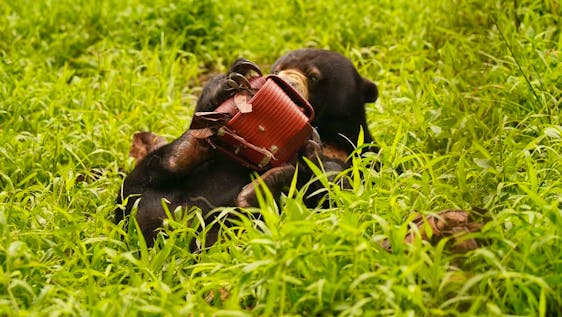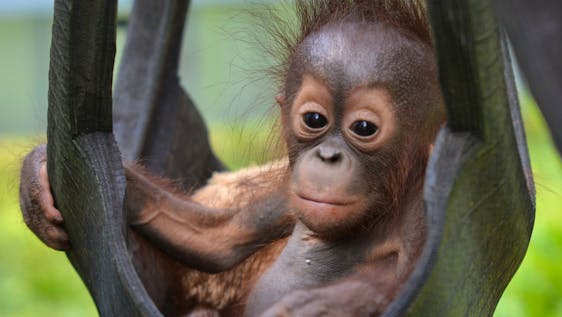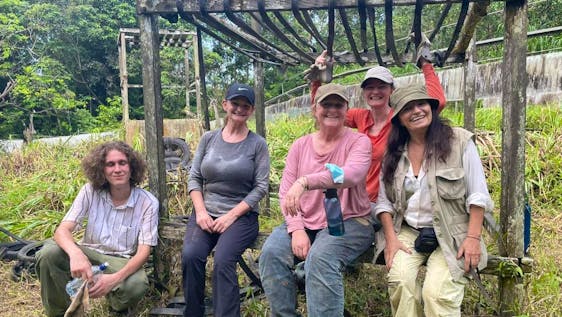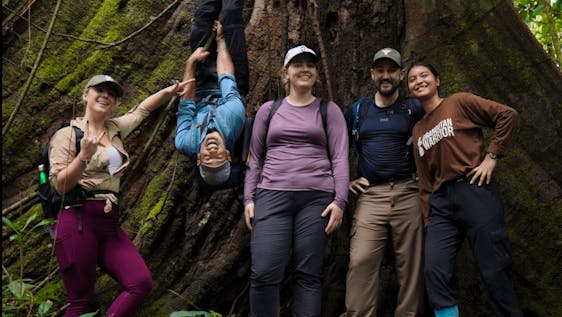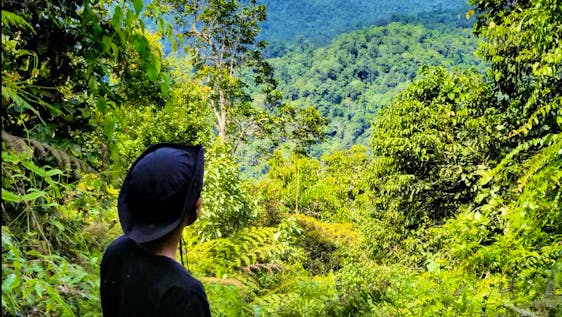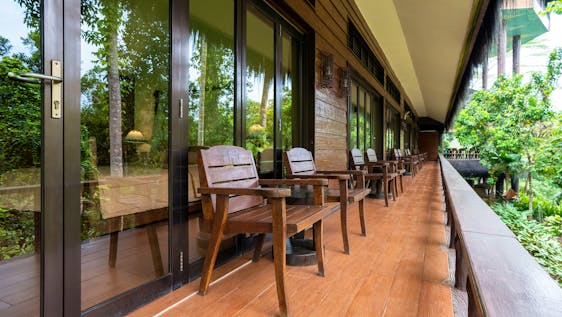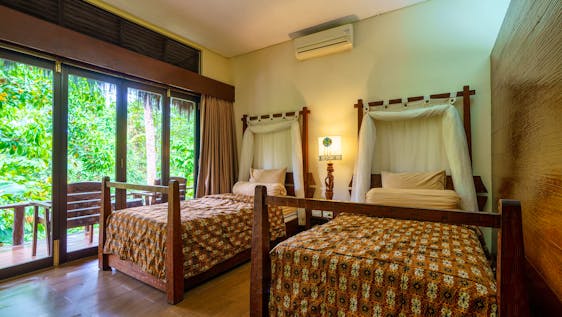Volunteer in Borneo
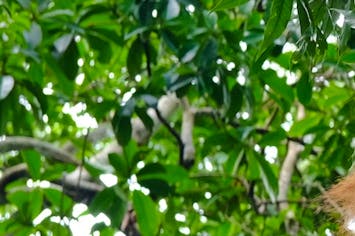
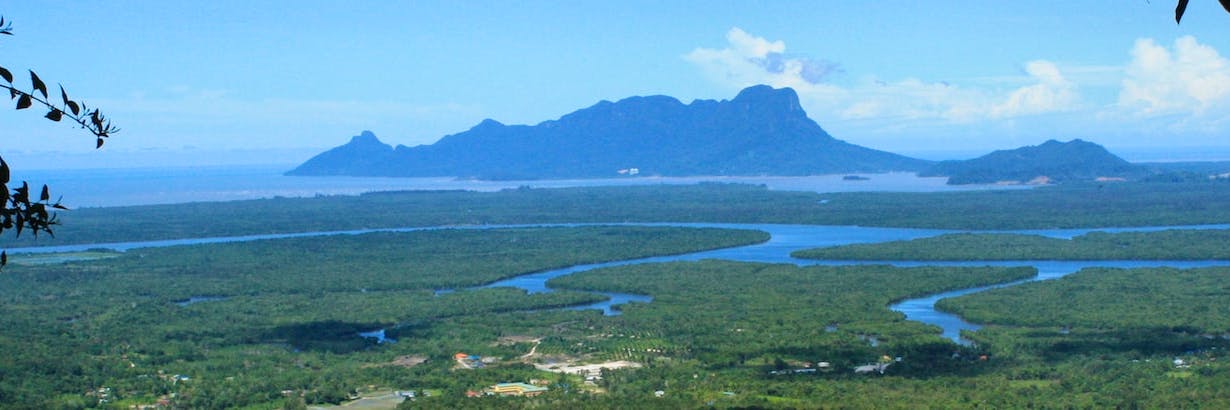
Volunteer work in Borneo
Home to one of the oldest rainforests in the world, you’ll find some of the most exotic creatures in Borneo. Ready to spot Irrawaddy dolphins, saltwater crocodiles, proboscis monkeys, and wild orangutans? Volunteer for one of the volunteer programs and experience Borneo in a sustainable way. Explore the well-kept secrets of the impenetrable jungle and rescue some of the most critically endangered species in Asia. Travel abroad and contribute to one of the orangutan or reforestation programs.
Borneo is about twice the size of Germany and boasts a rainforest that is over 130 million years old and home to 200 different ethnic groups, 15.000 plant species, and 222 mammal species. Borneo has countless treasures you will experience when you decide to join one of the many volunteer programs. Threatened by both humans and natural disasters, Borneo and it's wildlife need all the help they can get.
Wildlife Protection in Borneo
Are you drawn to Borneo because you can’t wait to see the orangutan up close? With Borneo being their only home (together with Sumatra), this is your chance to see this endangered species in its natural habitat. Volunteer for one of the programs to experience this great ape in its natural habitat. The orangutan population has almost halved in the past 60 years. They need your help!
As a volunteer in Borneo, you'll travel to one of the oldest rainforests in the world. Use your jungle experience to help reverse the downward trend of the orangutan population in South-east Asia!
Volunteer with Orangutans in Borneo
With its lush rainforests and tropical climate, this island in Southeast Asia one of the last remaining homes for orangutans in the wild. The great apes known for their reddish fur and intelligence live in the ancient forests and national parks of the Malaysian and Indonesian provinces of the island.
Just like Sumatran Orangutans and the recently discovered Tapanuli Orangutans, Bornean Orangutans are critically endangered. Dwindling numbers due to climate change and human pressures are risking this species to become extinct in the wild.
Orangutan conservation is becoming more and more important. The future of these creatures depends on our commitment to fight deforestation, climate change, and illegal hunting. You can do your part in protecting Borneo’s orangutans and their habitat by joining one of the volunteer projects in Borneo. Travel abroad to this enchanting island is Asia and discover a world of wildlife and nature you won't find anywhere else abroad.
Bornean Orangutan conservation status in 2025
Orangutans are one of our closest relatives sharing almost 97% of our genetic code. However, we are also the reason why this red-haired ape is on the endangered species list today. Over the past 16 years, nearly 150,000 animals have been lost. Experts estimate there are currently about 105,000 Bornean Orangutans left in the wild. If conservation efforts fail, this number may decline to 47,000 by this year.
Why are Bornean Orangutans endangered?
There are several reasons why the orangutan population in Borneo is collapsing. Most of them are related to humans. Let’s have a look at the five main threats:
Habitat loss
On the island of Borneo, orangutan families can be found in the rainforests of the Malaysian states of Sabah and Sarawak, as well as the Indonesian provinces of North, East, Central, and West Kalimantan.
Bornean Orangutans spend most of their lives in trees. They depend on the forests’ rich variety of fruit, leaves, flowers, and insects for food and build their sleeping nests from branches and leaves in the treetops.
Sadly, over the past 20 years, deforestation has caused a large-scale loss of forests – and therefore orangutan habitat – in Borneo. About 300 million trees have been cut down reducing the livable area by at least 55%. Since orangutans are solitary animals, they are distributed unevenly throughout Borneo with around 22% living in protected areas. This means the majority of the population lives in forests where trees are cut down (legally or illegally) for commercial purposes such as timber, palm oil production or real-estate development
Climate change adds to the problem, and scientists predict a further 70% loss of living space for orangutans by 2080. If climate change and deforestation continue, the Bornean Orangutan will no longer have a home.
Illegal hunting
Orangutans in Borneo are protected by law. Each year, however, several thousand animals are hunted and killed for their meat, animal trade or to protect crops. Since these apes are a slow-breeding species, their populations will collapse if mortality rates continue at this rate.
Fires
Fires have already killed thousands of orangutans in Borneo. Every year during the dry season (between March and October), forest fires destroy massive areas of orangutan dwellings, burning alive the ones that are too slow to flee or pushing the escaping apes towards cultivated areas, where they're threatened by residents who may kill them to protect their harvest.
In 1997-98, forest fires in Kalimantan killed up to 8,000 animals. Even protected areas such as national parks are not safe from fires because the increasing area of plantations and logged forests make it easier for a fire to spread.
Habitat fragmentation
When a large territory, where its inhabitants can roam freely to find food, mate and go about their day, is cut into smaller, isolated patches it’s called habitat fragmentation.
In Borneo, this fragmentation is a big problem for orangutans. As more and more of the island’s ancient forests are converted into agricultural land or cut down, this great apes’ dwelling is minimized, increasing competition for food and territory. By 2030, only a small percentage of the Bornean Orangutan's living environment will be undisturbed by infrastructure development. Many smaller populations will go extinct unless effectively managed.
Lack of knowledge
Although it's known in the international community that orangutans are on the brink of extinction, many locals in Borneo simply don’t. For example, a recent study suggests that 27% of the people in Borneo’s Kalimantan did not know that orangutans are protected by law.
That’s why education and campaigns to inform the public about these issues are so important. In the end, orangutan conservation is not only good for the animals, but also for the residents of Borneo who rely on the forest for their livelihood, flood control and erosion management. Your volunteer work in Borneo will be appreciated and it will also enrich you with a unique experience.
Environmental Conservation in Borneo
The orangutan's situation is pressing but we can still save this incredible species from extinction. Travel to Asia and become a volunteer in Borneo! Preserve the ancient forests of Borneo - their natural environment - from destruction and create a safe environment for Bornean Orangutans to thrive. This is key to ongoing conservation efforts for orangutans and other wildlife unique to Borneo.
Forest Fires
Forest fires are a threat not only to orangutans but also to the environment and the people of Borneo. Though not as severe as the forest fires of 2015, the forest fires of 2019 have wreaked havoc in Indonesia once again clearing 8500 sq km or 3300 sq miles of rainforest - the equivalent of Puerto Rico! The worst affected region is Kalimantan located in the Indonesian part of Borneo.
Effects of forest fires
Forest fires have become an unavoidable seasonal disaster for Borneo in the past years. It’s causing hazardous conditions for people, wildlife and the environment. Besides health, education, transport and the economy have taken a hit. Schools have closed, flights have been canceled and a state of emergency has been assigned to afflicted parts of Borneo for the better part of the year.
Because the island is shared between Indonesia, Malaysia and Brunei, the fires have also ignited political conflict between Indonesia and Malaysia. Malaysia claiming Indonesia is not doing enough to counteract the man-made fires.
Health
The ongoing fires produce thick smog which decreases visibility and reduces the air and water quality. The smog travels for kilometers, affecting people in neighboring countries and islands. Respiratory infections, stroke, cardiovascular disease and diphtheria are a few of the side effects of the smog. Scientists believe the effects of the fire will lead to premature deaths in the years to come.
Causes of forest fires
The dry season is partly to blame for forest fires but humans play a role too. Palm oil companies, farmers and landowners set fires as a cheap way to clear the land for timber, palm oil, pulp, rubber and minerals. While agriculture and used to be the main driver behind forest fires, real estate development now also plays a big role. There’s been a rise in real-estate development on the island recently.
When forests are undisturbed, they aren’t susceptible to fires. It’s when they are opened up to humans that they dry out and become vulnerable to fire. Forest fires have devastating effects on their direct environment and the environment as a whole. The amount of carbon dioxide that is released into the atmosphere affects the whole world. Fires also weaken the ability of the land to regenerate itself.
The only way to prevent further loss of rainforest and its unique wildlife is by finding more sustainable income opportunities for locals and teaching everyone the importance of environment and wildlife conservation from an early age. Be part of this important journey and volunteer for one of the many volunteer programs in Borneo. Travel abroad and experience on of the oldest parts of Asia!
How can I save Bornean wildlife?
Now that we know the threats Bornean Orangutans are facing, let’s do our part to save these special creatures!
Volunteer in Borneo for orangutan conservation projects and immerse yourself in the lush green of the world’s oldest rainforests.
Our featured rehabilitation projects are some of Borneo’s prime orangutan sanctuaries and rescue centers. They offer a wide array of activities to help conserve and restore Bornean Orangutan populations. As a volunteer in Borneo, these are some of the tasks you'll help with at an orangutan conservation program or orangutan sanctuary:
- Plant trees to restore lost orangutan habitat
- Support orangutan rescue procedures
- Prepare rescued orangutans for rehabilitation in the wild
- Create natural, educational playgrounds where orangutans can learn essential skills
- Prepare food for orangutans and other wild animals
- Clean the cages and enclosures
- Build and maintain ranger stations, cages, feeding platforms, jungle treks, and playgrounds
- Wildlife monitoring
- Teach local school children the importance of conservation and sustainable agriculture
- Tend to the local garden
When you volunteer in Borneo, keep in mind that this is supposed to protect orangutans and rehabilitate them in the wild. Physical contact is not allowed. Through volunteer work in Borneo, you participate in ecotourism that conserves the local environment and offers an alternative source of income for locals.
Your benefits of volunteering in Borneo
We recommend volunteering at an orangutan conservation project or sanctuary in Borneo. Why? There are many benefits for Bornean Orangutans, the local community, and for you:
Be part of the historic endeavor to save a species on the brink of extinction. Imagine a few years from now, Bornean Orangutans have grown back to a healthy population and you were part of the rehabilitation efforts. How awesome would that be?
Get to know one of the closest relatives to the human species. Orangutans are known for their high intelligence and their similar genetic code. This is your chance to learn more about this fascinating creature and get a closer look at its remarkable habits and behaviors.
Explore Borneo’s breathtaking nature. Borneo is one of the most biodiverse places in the world and home to some amazing wildlife like the endangered Pygmy Elephant. During your volunteering efforts in Borneo, you will discover its rich wildlife. Besides project work with orangutans, you'll go on jungle treks through national parks and boat trips.
Connect with local and indigenous communities. Meeting locals and getting to know a different culture while volunteering is exciting and will give you a new perspective in life. Prepare to be amazed and surprised during your volunteer work in Borneo!
Make friends from all over the world. Living in a foreign environment and working on a volunteer project together can create bonds for life. Our volunteers travel from all over the world to support national conservation projects, so get ready to make some international friends during your time as a volunteer in Borneo!
Upgrade your resume. Companies are always looking for something in your resume that stands out and shows personality. Rehabilitating orangutans through volunteer work in Borneo? That will give you something inspiring to talk about in your interview!
Free-time activities in Borneo
As a volunteer in Borneo, you can explore the wonders of the island during your time off! Adventurers will be excited about the rafting, hiking, tubing and wildlife spotting possibilities in the magical rainforests and its surroundings. If you’re missing a bit of culture, be sure to visit Sarawak which is famous for its arts and culture. Those in need of modern luxuries will find their way in Kota Kinabalu which is equipped with shopping malls and modern infrastructure.
Mountaineers will want to climb the highest mountain in Southeast Asia, Mount Kinabalu and take a well-deserved break in the quaint picturesque town Kota Belud in Sabah. This is an authentic beach town, surrounded by rolling mountains.
The national parks are all noteworthy in their way. Don’t miss this chance to discover one of the most diverse regions of Asia. Nature lovers and adventure seekers will not be disappointed!
Things to know before you volunteer in Borneo
When you travel abroad, there are always a few things you should know and keep in mind to make sure you have a pleasant stay. Here are some useful information and tips about traveling abroad and Borneo, in particular, that may help you:
Best season to travel Borneo
Temperatures remain fairly constant year-round with averages of 27-32°C and relative humidity of around 80%. Borneo’s high season is May to September when days are dry and warm. Accommodation can be in short supply during this time. The dry months are also when there's the highest risk of forest fires. The wetter months in Borneo are between November and February and can be quite unpredictable. Weather conditions may also vary depending on where on the island you are staying. It's best to do some research before going so you're sure the conditions are safe for traveling.
Safety & Precautions
Traveling abroad is always a risk in terms of safety. Heading to one of the most remote rainforests, it's best to take extra precautions:
- Make sure you have copies of important documents
- Keep originals dry in a plastic cover
- Avoid bringing valuables
- Keep your phone in a plastic cover against the humidity
- Avoid entering the rainforest without a guide from a legitimate organization
- Kidnappings have happened in the past. Be careful when taking boat rides and traveling to diving site
Culture & religion
Although there’s a large Chinese influence on the island, Malaysia, Brunei, and Indonesia are predominantly Islamic countries with certain cultural norms. Locals are aware that foreigners are unfamiliar with their local customs and traditions. However, tourists should show their willingness to respect the Bornean culture.
- It's best to dress modestly without exposing too much skin, especially women
- Do not point your finger, instead use the thumb with four fingers folded beneath it
- While entering a mosque, remove your shoes outside the mosque and cover your head, arms, and knees. No part of the skin except for the face of a woman should be exposed
- Never refuse food. Have a bit and use the right hand to pass anything
- During the month of Ramadan, do not eat or drink anything in front of a fasting person
- Consume alcohol in private or in hotels or restaurants that have the license to serve liquor
Health advice
Several vaccinations are recommended before traveling to Borneo. For most short-term travelers, the recommended vaccinations include those against childhood diseases (Tetanus and Diphtheria, Measles, Mumps, and Rubella), and food and water-borne diseases like Typhoid and Hepatitis A. For those trekking in Borneo or staying for longer periods, it's best to vaccinate against Hepatitis B and Rabies. Malaria Prophylaxis is also advised depending on your itinerary.
Who can volunteer in Borneo?
Every volunteer project expects a different skill set of their volunteers. While you can find out the specific requirements for each project on their program page, here are some general requirements that apply to most volunteer programs in Borneo:
- You need to be at least 18 years old for most volunteer projects. When in doubt, we advise you to get in touch with the local project manager. Some projects allow you to volunteer from the age of 16. There’s no maximum age limit: just check the 50+ icon on the program pages.
- You need to have basic English skills to join a volunteer project in Borneo. Please note that some teaching projects may require more advanced skills.
- Depending on the project you're interested in, you may need to provide a criminal background check and a health declaration before volunteering.
- You are more than welcome to bring your friends or family to work for the social project. Just contact the project manager and ask them for the available opportunities.
Volunteering abroad is a great opportunity to gain international work and travel experience. Getting out of your comfort zone will allow you to grow as a person while making an impact on the world. Asia is one of the best places to start if it's your first time volunteering abroad. It’s reasonably safe and the people are welcoming.
Volunteering in Borneo will reveal the secrets of one of the oldest rainforests in the world. Breathtaking scenery and incredible wildlife will leave you in awe and disbelief of the damage that is being done to this green treasure.
Orangutans are one of the most vulnerable species of Asia but there are so many others. Volunteer with orangutans in Borneo and give these creatures a chance of survival. Help tackle the root cause of their endangered status and enable sustainable solutions that will benefit both the community and the environment they live in.
Start your adventure abroad here and get in touch with us. We'll help you find the best volunteer opportunity for you.
 Bear Conservation
Bear Conservation
 Asia
Asia
 Animal
Animal
 South East Asia
South East Asia
 Orangutan
Orangutan
 Hotspots
Hotspots
 Great Apes Conservation
Great Apes Conservation
 Primate Conservation
Primate Conservation
 Monkey Conservation
Monkey Conservation
 Indonesia
Indonesia
 Binturong
Binturong
 Macaque
Macaque
 Malaysia
Malaysia
 Activities
Activities
 Animal Sanctuary
Animal Sanctuary
 Wildlife Conservation
Wildlife Conservation
